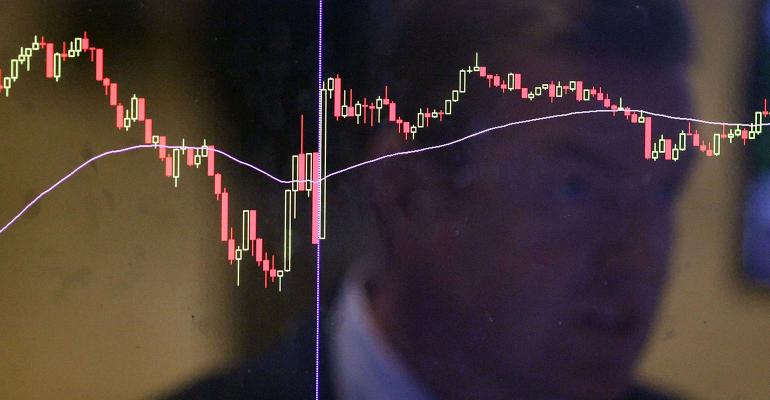By Annie Massa and Elizabeth Dexheimer
(Bloomberg) --The growing market for exchange-traded funds hasn’t been fully put to the test, according to one of the top U.S. speed trading firms.
Ari Rubenstein, chief executive officer and co-founder of Global Trading Systems LLC, told lawmakers Tuesday that while investment dollars have flooded the U.S. ETF market, the new order has not endured an extreme period of stress. Volatility, a measure of market uncertainty, has remained low.
“In some ways the markets are a bit untested,” Rubenstein said at a House Financial Services Committee hearing on U.S. equity market structure. “It’s definitely something we should talk about to make sure industry participants are prepared in those instruments.”
Rubenstein’s opinion may resonate given the prominent role his company plays in the stock market. GTS helps shepherd more than 1,200 listed shares as a “designated market maker” at the New York Stock Exchange, where it’s responsible for ensuring companies including Berkshire Hathaway Inc. and Alibaba Group Holding Ltd. trade smoothly.
His remarks come as the market for the index-based products swells. U.S. ETFs leaped from $400 billion in assets a decade ago to nearly $3 trillion today. Meanwhile, volatility has been low, with the CBOE Volatility Index falling eight out of the past 10 weeks.
Volatility Test
That combination could result in some uncertainty as the new market dynamics haven’t really been tested by an extreme sudden rise in volatility, according to Rubenstein. He pointed to a particularly volatile trading session on Aug. 24, 2015, during which ETFs were dramatically affected -- out of more than 1,000 trading halts, the majority were in ETFs -- and led stock exchanges to change their rules.
“We should take note of the fact that we’ve never seen a high volatility environment with this amount of investment dollars in ETFs, and I think we should be paying attention to making sure markets function really well,” Rubenstein said in an interview following the hearing. “Let’s say there was a mass exodus of positions in ETFs. That’s going to stress the system, and we are going to depend on electronic market makers to provide that liquidity.”
Rubenstein’s remarks were part of a hearing with lawmakers on points of weakness and areas for improvement in the $27 trillion U.S. stock market. He testified alongside Matt Lyons, global trading manager of the Capital Group Companies Inc., Joseph Saluzzi, a partner at Themis Trading LLC, and Jeff Brown, senior vice president of legislative and regulatory affairs at Charles Schwab Corp.
Separate issues raised included an incentive system that exchanges use to attract trading, a controversial way that retail brokers carry out their customers’ trades, and conflicts of interest for stock exchanges and brokers.
--With assistance from Rachel Evans.To contact the reporters on this story: Annie Massa in New York at [email protected] ;Elizabeth Dexheimer in Washington at [email protected] To contact the editors responsible for this story: Nick Baker at [email protected] Eric J. Weiner





